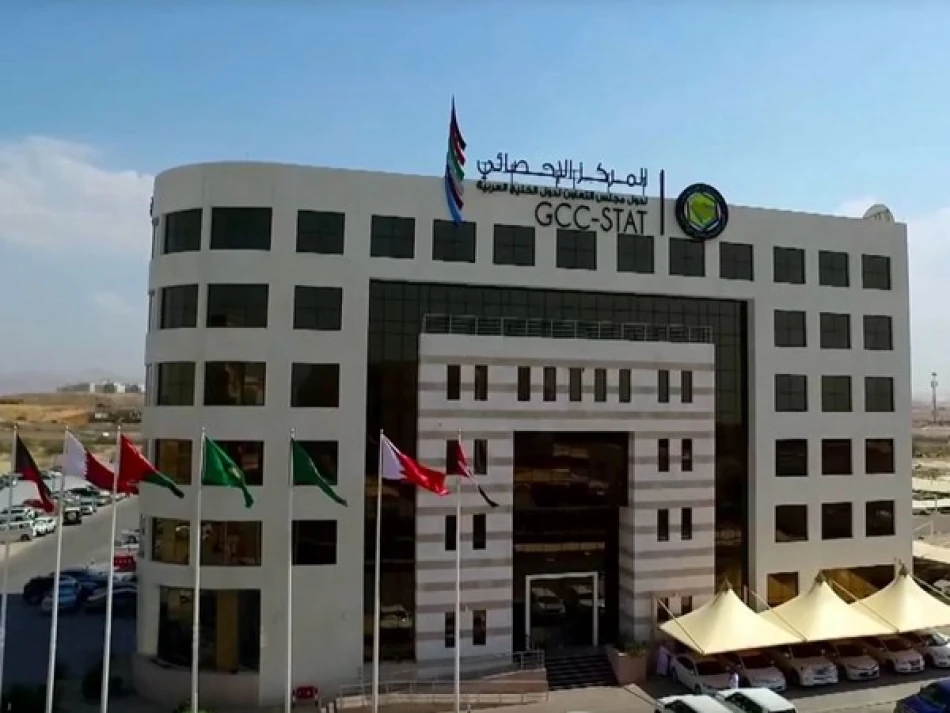
GCC Nations Achieve Sustainable Waste Management Milestones
Gulf States Achieve Major Waste Management Breakthrough as Recycling Surges 128%
The Gulf Cooperation Council (GCC) has reached a significant environmental milestone, achieving the UN's Sustainable Development Goal 12 for hazardous waste recycling with a 30% rate in 2023. This accomplishment comes alongside dramatic improvements in waste processing capacity, which has more than doubled since 2019, signaling a fundamental shift in the region's approach to environmental sustainability amid growing global pressure on oil-dependent economies to diversify.
Household Waste Generation Drops Despite Economic Growth
In a remarkable trend that defies typical economic patterns, per capita household waste in GCC countries fell by 17.4% to 1.4 kilograms per person daily by the end of 2023. This reduction occurred during a period of robust economic recovery, suggesting that sustainability initiatives and behavioral changes are taking root across the region.
Total household waste collection peaked at 35.5 million tons in 2020—likely driven by pandemic-related consumption patterns—before declining steadily to 30.8 million tons in 2023. This three-year downward trajectory indicates that the initial reduction wasn't merely a post-pandemic adjustment but represents a sustained shift in waste generation patterns.
Massive Infrastructure Investment Transforms Processing Capacity
The most striking development lies in the region's waste processing capabilities. Total waste treatment capacity reached 192 million tons by the end of 2023, representing a staggering 128.5% increase compared to 2019. This infrastructure boom reflects substantial government investment in environmental technology and suggests a strategic pivot toward circular economy principles.
Medical Waste Management Leads Innovation
The medical waste sector exemplifies this transformation. Despite an 11.4% decrease in collected medical waste in 2023 compared to 2022—as post-COVID healthcare demand normalized—GCC countries expanded their dedicated incineration facilities to 23 sites, a 27.8% increase. More importantly, the design capacity of these facilities surged by 123.9% to reach 207,500 metric tons, indicating preparation for future healthcare demands and potential emergencies.
Regional Context and Global Implications
These achievements position the GCC favorably compared to global waste management trends. While countries like Singapore and South Korea have long led in waste processing efficiency, the Gulf states' rapid infrastructure development mirrors China's environmental push of the mid-2010s, albeit with greater focus on hazardous waste treatment.
The timing is particularly significant as the region faces increasing scrutiny over its environmental footprint. With COP28 hosted by the UAE in 2023 and growing international pressure on fossil fuel exporters to demonstrate climate leadership, these waste management improvements provide tangible evidence of environmental commitment.
Economic and Investment Perspective
For investors and policymakers, the data reveals several key opportunities. The waste management sector in the Gulf is experiencing unprecedented growth, with total collected waste reaching 262.7 million tons in 2023—a 153.7% increase since 2019. This expansion creates substantial opportunities for waste-to-energy projects, recycling technologies, and environmental services companies.
The fact that 95.8% of hazardous waste is exported for treatment abroad also highlights a significant gap in domestic processing capabilities, potentially attracting international waste management firms and technology providers to establish regional operations.
Strategic Implications for Sustainable Development
The GCC's success in achieving SDG 12 targets, evidenced by 87 national reports submitted under the Basel Convention on hazardous waste control, demonstrates the region's capacity for rapid environmental policy implementation when political will aligns with economic incentives.
This waste management transformation should be viewed within the broader context of Gulf economic diversification strategies. As these oil-rich nations seek to reduce dependence on hydrocarbon revenues, developing advanced environmental technologies and circular economy capabilities creates new industrial sectors while addressing international environmental expectations.
The combination of reduced per-capita waste generation and dramatically increased processing capacity suggests the GCC is building environmental resilience that could serve as a model for other resource-rich developing regions facing similar sustainability challenges.
Most Viewed News

 Layla Al Mansoori
Layla Al Mansoori






